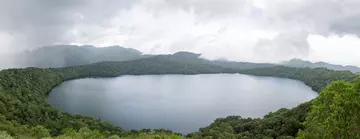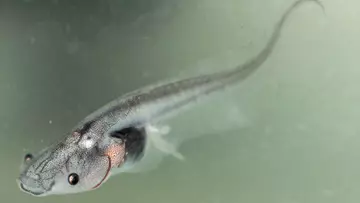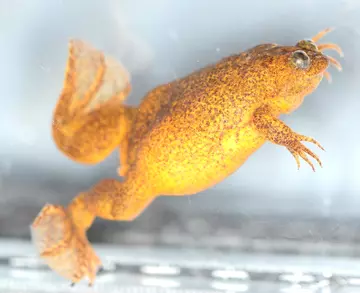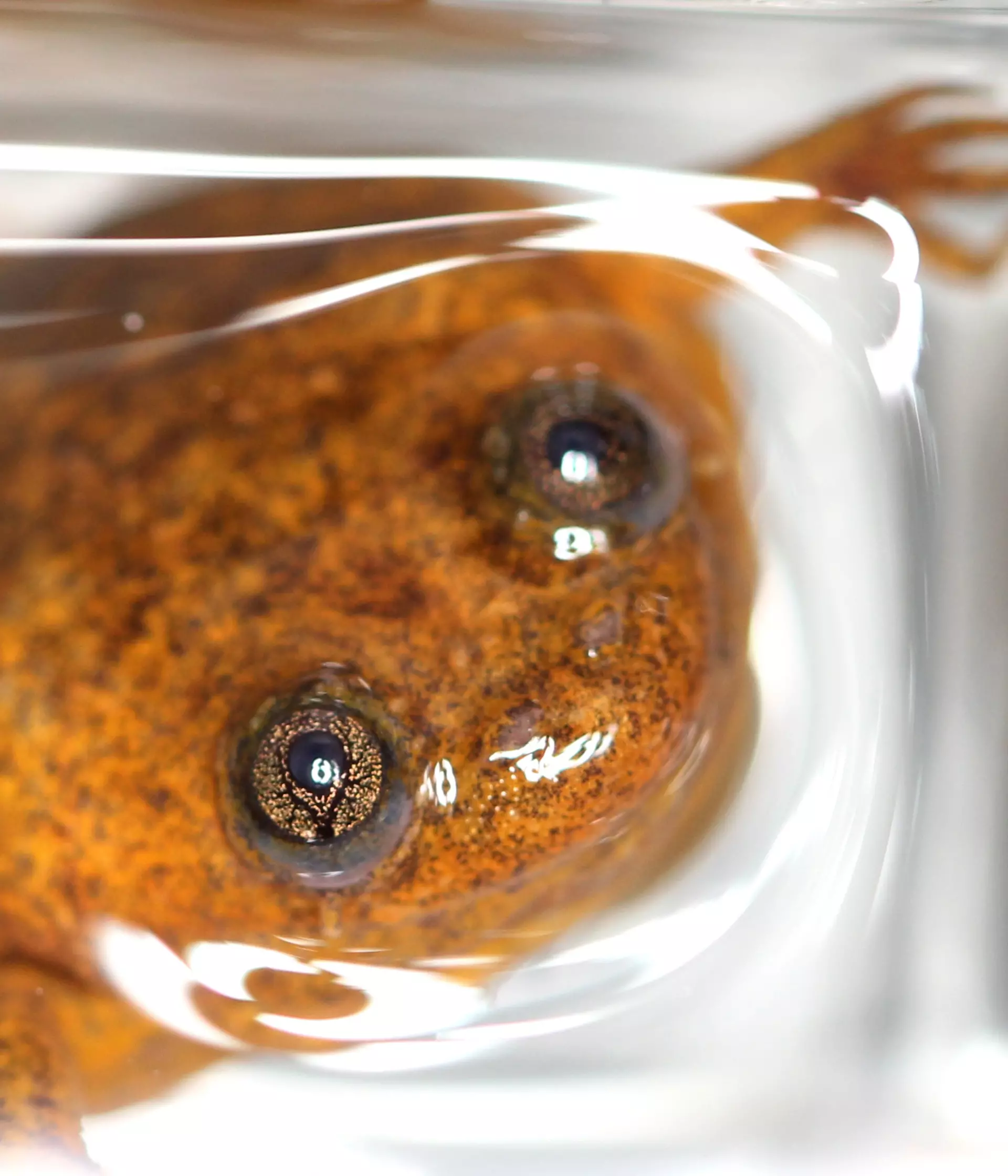
The Lake Oku clawed frog is a Critically Endangered amphibian with a unique evolutionary history. Now, the survival of this rare species rests with the dedicated team at ZSL.
At first glance, the small freshwater lake in the mountains of northwest Cameroon looks like a typically serene and idyllic mountain lake. Yet, beneath the glittering surface of Lake Oku lurks something truly extraordinary.
There are no fish to be found in Lake Oku. But what it does contain is far more precious. Because it’s the only place on the planet where you’ll find the Lake Oku clawed frog (Xenopus long pipes) – a beautiful but Critically Endangered amphibian with a unique evolutionary history.

A totally unique species
These small, totally aquatic frogs are one of the most genetically unusual creatures in the world, boasting a staggering twelve sets of chromosomes (humans only have two!).
But because these natural wonders are only found in this one place, their natural range is a tiny 2.43 square kilometres, which makes them extremely vulnerable to random events.
Add to that, environmental threats like deforestation of the surrounding area, pollution and the potential introduction of non-native fish into the lake that would eat both adults and tadpoles, the long-term future of the Lake Oku clawed frog is still far from certain.
But there is hope for these tiny evolutionary marvels.

In 2014, ZSL was responsible for the first successful captive breeding of this rare amphibian at London Zoo. The breeding programme marked a momentous step in ensuring the future survival of the species.
“We’re now able to shed light on aspects of the biology that are difficult to study in wild populations,” explains Charli Ellis, a ZSL Keeper.
“A huge proportion of what we know about Lake Oku clawed frogs, especially their reproductive biology, comes from the observation of them at the Zoo. For instance, we discovered that the tadpoles are very sensitive to water chemistry, unlike common Xenopus tadpoles. Gleaning this information is crucial to be able to apply it practically to enhance husbandry management and conservation efforts.”

Important steps forward
To that end, ZSL has supported invaluable field work in Lake Oku alongside partners Conservation Research for Amphibians Unique to Cameroon and the Royal Zoological Society of Scotland, including routine surveys and pathogen surveillance studies. The stunning lake is hailed as sacred by the local community so the development of an action plan for its protection has also been crucial.
Meanwhile, the ex-situ population of the Lake Oku clawed frog at London Zoo continues to form the core of a conservation research programme that documents the life history and evolutionary significance of these Critically Endangered amphibians.
